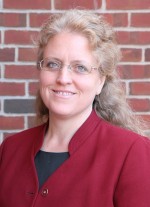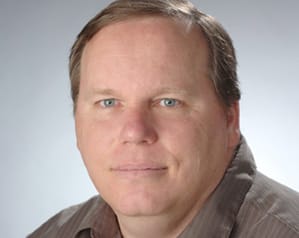NSF Grant to Study Distributed Energy Markets Awarded to SU faculty team

Keli Perrin, Assistant Director of INSCT and JD/MPA (2004) SU/Maxwell
Multidisciplinary Team Wins NSF Award to Study Distributed Energy Markets
Researchers across four schools at Syracuse University are researching two-way, distributed energy market designs. (reposted from SU News)
As the traditional, centralized way of producing and distributing electricity gives way to a future of decentralized, “smart” energy production and consumption, policymakers, producers and regulators must understand the security and privacy risks inherent in “distributed” energy production and in encouraging consumers to better manage, even produce, their own energy.
That’s why an interdisciplinary team of Syracuse University cybersecurity, engineering, economics and law experts, led by School of Information Studies (iSchool) faculty member Jason Dedrick, are conducting research into various “two-way, distributed” energy market designs to assess potential security and privacy risks inherent in each, and the trade-offs between reducing risk and optimizing market performance.
Funded with a $344,184 grant from the National Science Foundation, the team is drawn from the iSchool, theCollege of Engineering and Computer Science, the Maxwell School of Citizenship and Public Affairs and theCollege of Law. It will employ mixed methods to conduct the market assessment, including interviews, market structure and data flow modeling, simulations using real world electricity use data and security threat analysis.

Peter Wilcoxen, Professor of Public Administration and International Affairs, co-teaches a course on Smart Grid
“In the ‘smart grid,’ electricity and information will flow back and forth among households, businesses and small producers,” explains Dedrick, Professor of Information Systems and the project’s principal investigator (PI). “Consumers will be able to create their own power and sell it back to the grid, while information about demand, supply and performance will flow to and from appliances, electric cars and solar cells and other local generators.”
But, observes Dedrick, there are significant risks associated with the two-way, distributed smart grid. Networked appliances could be vulnerable to cyber attacks. High-speed, decentralized electricity trading will make it harder to identify fraud. And there might be opportunities for market manipulation, privacy breaches and even physical damage to the national infrastructure.
“The wide range of new participants and devices in a two-way, distributed smart grid creates many new cybersecurity vulnerabilities. Our goal in this project is to determine the degree of vulnerability of different market configurations and to identify resilient approaches,” says Co-PI Professor Peter Wilcoxen, Director of the Center for Environmental Policy and Administration at the Maxwell School. “Our research focuses on the different effects of privacy, security and integrity measures on the operation of the grid and energy markets, including impacts on the stability of the gird, the privacy of participants and the trustworthiness of the market—that is, can participants be confident that payments are fair and that prices are not overly volatile?”
The results of this two-year project will provide guidance to policymakers, regulators and market participants so that an effective market can be designed for a two-way, distributed smart grid, one that incorporates necessary security and privacy protections without burdening the market’s function.

Jason Dedrick, Leads Research Team – Professor at SU’s School of Information Studies

Steve Chapin, Associate Professor from SU’s College of Engineering and Computer Science
Dedrick will take the lead in collecting data on current and planned distributed energy markets and security policies, while Wilcoxen will lead the development, testing and analysis of market simulation models. Cybersecurity risks will be analyzed by Co-PI Steve Chapin, associate professor of computer science in the College of Engineering and Computer Science; and Keli Perrin, assistant director of the Institute for National Security and Counterterrorism, will draft privacy impact assessments for proposed markets.
| M | T | W | T | F | S | S |
|---|---|---|---|---|---|---|
| 1 | 2 | 3 | 4 | 5 | 6 | 7 |
| 8 | 9 | 10 | 11 | 12 | 13 | 14 |
| 15 | 16 | 17 | 18 | 19 | 20 | 21 |
| 22 | 23 | 24 | 25 | 26 | 27 | 28 |
| 29 | 30 | 31 | ||||
- January 2021
- December 2020
- November 2020
- October 2020
- September 2020
- July 2020
- March 2020
- January 2020
- December 2019
- November 2019
- October 2019
- August 2019
- June 2019
- May 2019
- April 2019
- March 2019
- February 2019
- January 2019
- December 2018
- November 2018
- August 2018
- July 2018
- May 2018
- March 2018
- February 2018
- January 2018
- December 2017
- November 2017
- October 2017
- September 2017
- August 2017
- July 2017
- June 2017
- May 2017
- April 2017
- March 2017
- February 2017
- January 2017
- December 2016
- November 2016
- October 2016
- September 2016
- August 2016
- July 2016
- June 2016
- May 2016
- March 2016
- February 2016
- January 2016
- December 2015
- November 2015
- October 2015
- September 2015
- August 2015
- July 2015
- June 2015
- May 2015
- April 2015
- March 2015
- February 2015
- January 2015
- December 2014
- November 2014
- October 2014
- September 2014
- August 2014
- July 2014
- June 2014
- May 2014
- April 2014
- March 2014
- February 2014
- January 2014
- December 2013
- November 2013
- October 2013
- Academics (103)
- Admissions (94)
- Application Tips (22)
- Career and Alumni (72)
- Faculty and their Research (58)
- Featured (7)
- Financing Graduate School (37)
- SU News (58)
- Welcome (3)
